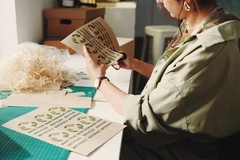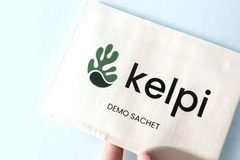Nexgen Packaging continues African expansion with Kenya headquarters in pipeline

09 Dec 2022 --- US-based Nexgen Packaging is scaling production in Africa by establishing headquarters in Nairobi, Kenya. With this investment, the trim and packaging solutions provider aims to bring a wide-ranging set of capabilities and product offerings to the African market, focusing on environmentally sustainable solutions.
The company shares that Kenya will serve as its primary production location for Africa and add to its existing operations in Ethiopia, Egypt and West Africa.
In partnership with Contech Container Technology, Nexgen is using “upcycled” shipping containers as the base of the three constructed facilities to further its green footprint.
The facilities will allow Nexgen to produce and deliver packaging products, including care labels, heat transfers, variable data products (including RFID tags and stickers), brand identification products, woven labels and other packaging offerings.
“Our team at Nexgen exceeds the present and future needs of our customers, which is why we are strategic to many brands and retailers globally,” says Jim Welch, CEO at Nexgen.
“Interest in producing apparel, footwear and home products in Africa is significant today and will grow dramatically over the coming years. This investment in Kenya is a perfect example of how we align our investments with the strategic needs of our customers.”
 Nexgen Packaging African headquarters in Nairobi will strengthen the company’s operations in Ethiopia, Egypt and West Africa.Spotlighting Africa
Nexgen Packaging African headquarters in Nairobi will strengthen the company’s operations in Ethiopia, Egypt and West Africa.Spotlighting Africa
Located in the Export Processing Zone in Athi River, Nexgen’s construction of its African headquarters will position the company to “meet the growing demand from manufacturers in Africa,” it says.
“We are building a great team in Nairobi with significant industry and regional experience. Combined with our investments in capabilities and capacity, I am confident that customers will immediately see the value we will bring to their African production operations,” shares Manuel Torres, managing director at Nexgen EMEA.
With the recently announced global initiative of “50 by 2050” at the COP27 climate summit targeting African waste, Nexgen’s drive to bring environmentally sustainable solutions to Africa is well-timed.
Moreover, Africa’s fight to tackle the crisis is also evidenced by the recent announcement by the government of Rwanda wherein it unveiled a 14-year US$211.3 million circular economy action plan for African waste management, providing 17 concrete policy interventions and a clear direction to achieve carbon neutrality and climate resilience.
With the continent advancing its environmental sustainability goals and its battle against waste colonialism, Nexgen Packaging’s eco-conscious product offerings could provide a welcome solution.
Scaling sustainability
Nexgen is a global producer of packaging solutions for the retail, apparel and footwear industries, providing apparel brand identification and packaging solutions. Nexgen Packaging is upcycling shipping containers as the base of three facilities being constructed.
Nexgen Packaging is upcycling shipping containers as the base of three facilities being constructed.
In January this year, the company made two strategic investments in Latin America, adding to its previous portfolio of 17 production facilities globally, including headquarters in Hong Kong, Chicago (US) and Madrid (Spain).
“Nexgen has always pursued the strategy of investing in production facilities close to our customers’ manufacturing points, and these investments in Mexico and Guatemala reflect our commitment to meeting our customers’ supply chain needs,” Welch said at the time.
Additionally, the company acquired Ditto Sustainable Brand Solutions’ assets last year to strengthen environmentally conscious packaging solutions.
Torres had said: “Sustainability is and in particular, the reduction of plastics at the core of Nexgen’s strategy. The combination of Ditto’s 15 years of expertise and Nexgen’s global footprint has allowed us to build a uniquely comprehensive and strong product portfolio that will address one of the major areas of concern for the retail industry.”
By Radhika Sikaria










